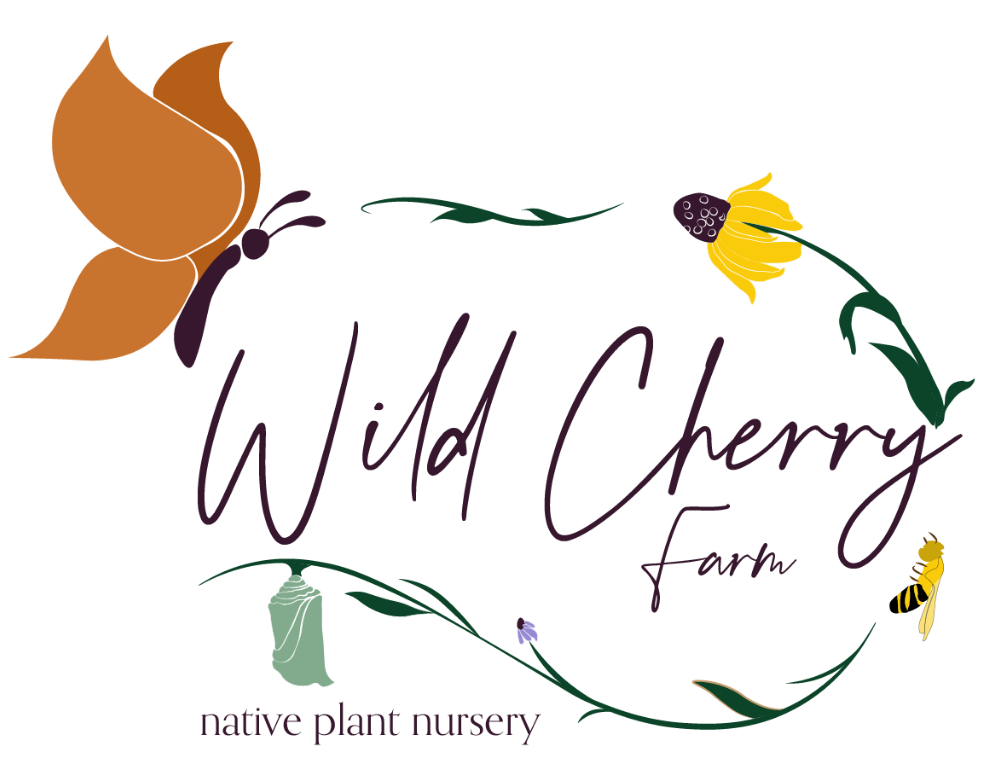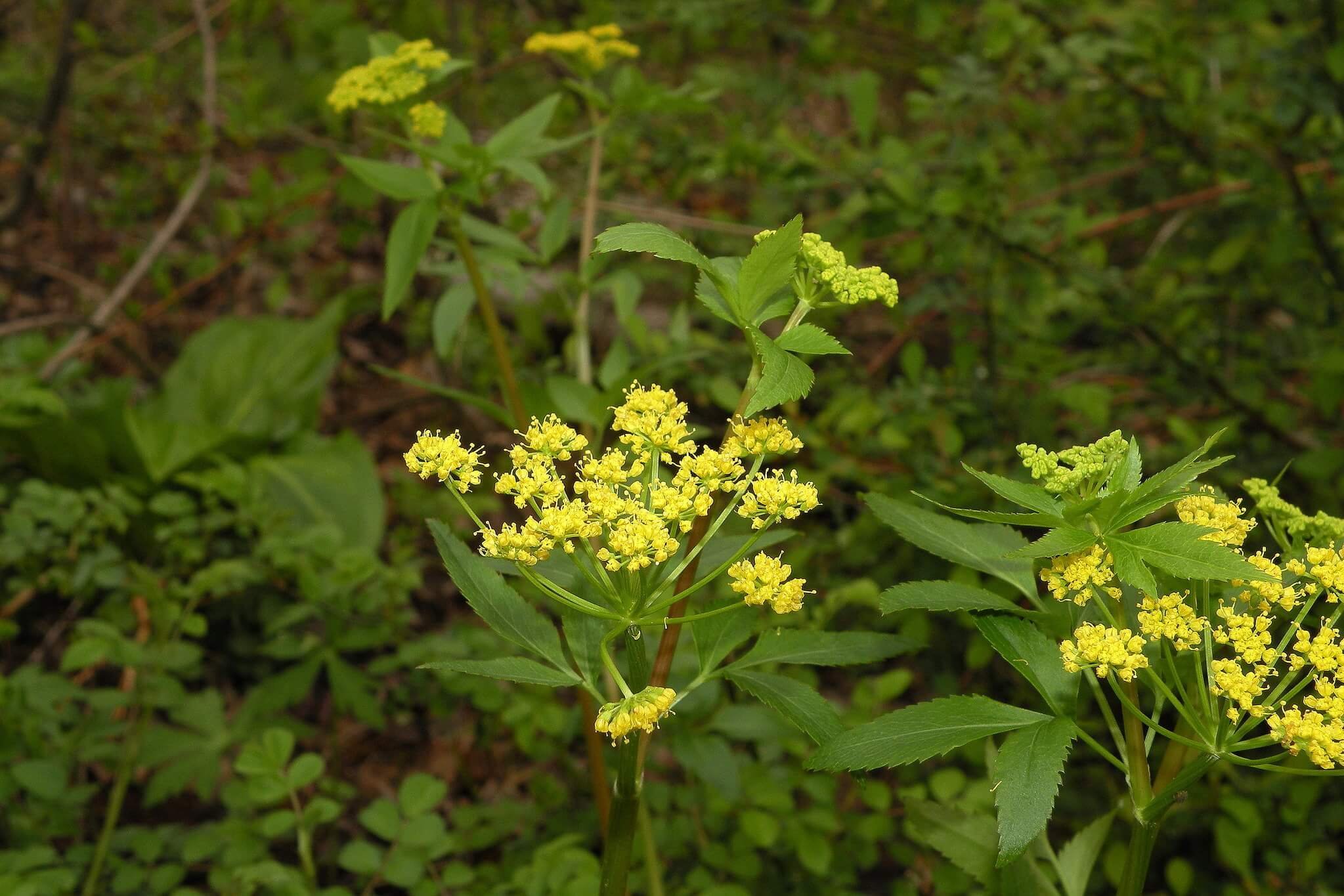Black-Eyed Susan (Rudbeckia hirta)
Black-Eyed Susan has a very high value to pollinators. Its bright yellow flowers are visited by numerous bees, moths, pollinating wasps, and flies (illinoiswildflowers.info) and it is the host plant to a whopping 30 different specialist bees (Holm, 2017) (Johnson and Colla, 2023)!! Black-Eyed Susan is recommended as a monarch nectar source by the Xerces Society (Xerces.org) and it is a host plant for the Silvery Checkerspot and 19 other species of butterflies and moths in our area (nwf.org) including the threatened Gorgone checkerspot (mnfi.anr.msu.edu). Although it is a biennial, it is a great self-seeder. Black-Eyed Susan has a long bloomer time too, lasting from 8-12 weeks! Birds, especially goldfinches, just love to eat those seeds too.
Photo credit: Garry Knight
Black-Eyed Susan has a very high value to pollinators. Its bright yellow flowers are visited by numerous bees, moths, pollinating wasps, and flies (illinoiswildflowers.info) and it is the host plant to a whopping 30 different specialist bees (Holm, 2017) (Johnson and Colla, 2023)!! Black-Eyed Susan is recommended as a monarch nectar source by the Xerces Society (Xerces.org) and it is a host plant for the Silvery Checkerspot and 19 other species of butterflies and moths in our area (nwf.org) including the threatened Gorgone checkerspot (mnfi.anr.msu.edu). Although it is a biennial, it is a great self-seeder. Black-Eyed Susan has a long bloomer time too, lasting from 8-12 weeks! Birds, especially goldfinches, just love to eat those seeds too.
Photo credit: Garry Knight
Black-Eyed Susan has a very high value to pollinators. Its bright yellow flowers are visited by numerous bees, moths, pollinating wasps, and flies (illinoiswildflowers.info) and it is the host plant to a whopping 30 different specialist bees (Holm, 2017) (Johnson and Colla, 2023)!! Black-Eyed Susan is recommended as a monarch nectar source by the Xerces Society (Xerces.org) and it is a host plant for the Silvery Checkerspot and 19 other species of butterflies and moths in our area (nwf.org) including the threatened Gorgone checkerspot (mnfi.anr.msu.edu). Although it is a biennial, it is a great self-seeder. Black-Eyed Susan has a long bloomer time too, lasting from 8-12 weeks! Birds, especially goldfinches, just love to eat those seeds too.
Photo credit: Garry Knight
Life Cycle: Biennial
Sun Exposure: Full, Partial shade (best in full sun)
Soil Moisture: Medium-wet, Medium, Medium-dry
Height: 2 feet
Plant Spacing: 10-12 inches
Bloom Time: June-October
Bloom Color: Yellow
Advantages: Caterpillar Favorite, Pollinator Favorite, Bird Favorite, Deer Resistant, Great landscaping plant
Host Plant: Silvery Checkerspot and 19 other species of butterflies and moths use this as a caterpillar host plant in our area (nwf.org/)
Specialist Bee: Andrena rudbeckiae, Perdita albipennis, Pseudopanurgus albitarsis, P. andrenoides, P. compositarum, P. labrosiformis, P. labrosus, P. rugosus, P. solidaginis, Melissodes denticulatus, M. agilis, M. bidentis, M. boltoniae, M. coloradensis, M. confuses, M. druriellus, M. illatus, M. microstictus, M. subillatus, M. trinodis, M. vernoniae, M. wheeleri, Svastra obliqua, S. petulca, Paranthidium jugatorium, Megachile pugnata, M. inimica, M. parallela, M. xylocopoides, Colletes americanus, and C. compactus (Holm, 2017) (Johnson and Colla, 2023)
Beneficial for Endangered or Threatened Species: Gorgone checkerspot (mnfi.anr.msu.edu)
Complementary Plants: Bee Balm, Butterfly Milkweed, Wild Petunia, Hoary Vervain, Blue Vervain, Side-oats Grama, Flowering Spurge, Blue-eyed Grass, Pale Purple Coneflower
Resource: Holm, Heather. Bees: An Identification and Native Plant Forage Guide. Pollination Press LLC, 2017
Resource: Johnson, Lorraine, and Sheila Colla. A Northern Gardener’s Guide to Native Plants and Pollinators: Creating Habitat in the Northeast, Great Lakes, and Upper Midwest. Island Press, 2023







